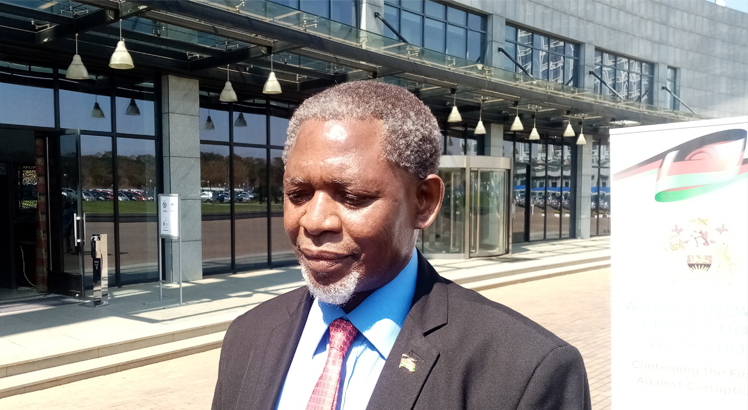Graft fight gets boost
Malawi’s graft fight has received a major boost as the Anti-Corruption Bureau (ACB) has now hired 17 new prosecutors and engaged four private practice lawyers to boost its capacity to prosecute corruption cases.
The development, announced by Minister of Justice Titus Mvalo in Lilongwe yesterday, comes at a time President Lazarus Chakwera also signed into law a Private Member’s Bill that amended the Corrupt Practices Act (CPA) to give the anti-graft agency the leeway to prosecute cases without seeking consent from the Director of Public Prosecutions (DPP).
The minister said when the Tonse Alliance administration assumed office following Chakwera’s triumph in the court-sanctioned Fresh Presidential Election held on June 23 2020, ACB had 12 prosecution lawyers. He said the 17 have increased to 29 the number of lawyers at ACB.

Mvalo said: “These are our own lawyers to prosecute cases, but we have also hired from the private sector additional four experienced lawyers to assist in prosecution of cases at ACB. When you add up all these numbers, the percentage increase in prosecution staff is 175 percent.”
During the briefing held under the tag Government Faces the Press, the minister also said enhanced international cooperation in exchange of evidence between Malawi’s investigating agencies and foreign ones could help in speeding up prosecution of financial crimes cases.
Mvalo said the country does not have the capacity to investigate and uncover evidence which others have uncovered, as such, availability of such evidence from other jurisdictions simplifies the task.
He said: “I want us to work more closely with other investigating agencies and be able to accept the evidence that they have which is relevant to a case that is here or a matter that is in court here and use it in court to prove our cases.”
Mvalo said all evidence is admissible in court regardless of how it was obtained and that the only exception is for evidence obtained through extortion or torture.
He said: “Even if that evidence was stolen. We have cases which say even if the evidence was stolen, if it is relevant in court, it is admissible.
“So, let us welcome evidence no matter how it was obtained, no matter where it is from, as long as it is relevant to an issue in court here.”
The amendment of the CPA came amid some bad blood between the DPP and the ACB over the granting of consent to prosecute some corruption cases.
ACB has openly accused the office of the DPP of frustrating its efforts by delaying consent, especially in relation to cases connected to United Kingdom-based businessperson Zuneth Sattar currently under investigation.
Mvalo said the amendment of the Act to allow ACB prosecute cases without seeking consent from the DPP should result in the bureau taking cases to court quickly.
But the minister avoided dwelling more on the matter, saying he would be stepping on a land mine as there is a case involving former minister of Lands Kezzie Msukwa and businessperson Ashok Nair which touches on the same.
Mvalo said another initiative that government is relying on to fight corruption is the establishment of the Economic and Financial Crimes Court he said will be operational soon.
He said when operational, the court will also enhance the speed in dealing with corruption matters.
Parliament passed the Courts Act Amendment Bill which seeks to establish the Economic and Financial Crimes Court.
Recently, retired University of Malawi associate professor of law Edge Kanyongolo said evidence sharing is a normal practice.
On legal and institutional reforms, he said the fight against corruption is multifaceted such that legal and institutional reforms are only a small part to speeding up cases.
Kanyongolo said: “There are a number of things that need to be looked into. There is need for political will, judicial efficiency and many other factors. There are also many socio-economic factors that affect cases. Even a power blackout can force an adjournment of a case.”
During yesterday’s briefing, Minister of Information Gospel Kazako said if the country can win the fight against corruption, things will improve in the country.
He said: “The country is struggling economically because some people looted public resources. Very few people benefited from resources and deprived others of better services,” he said.





